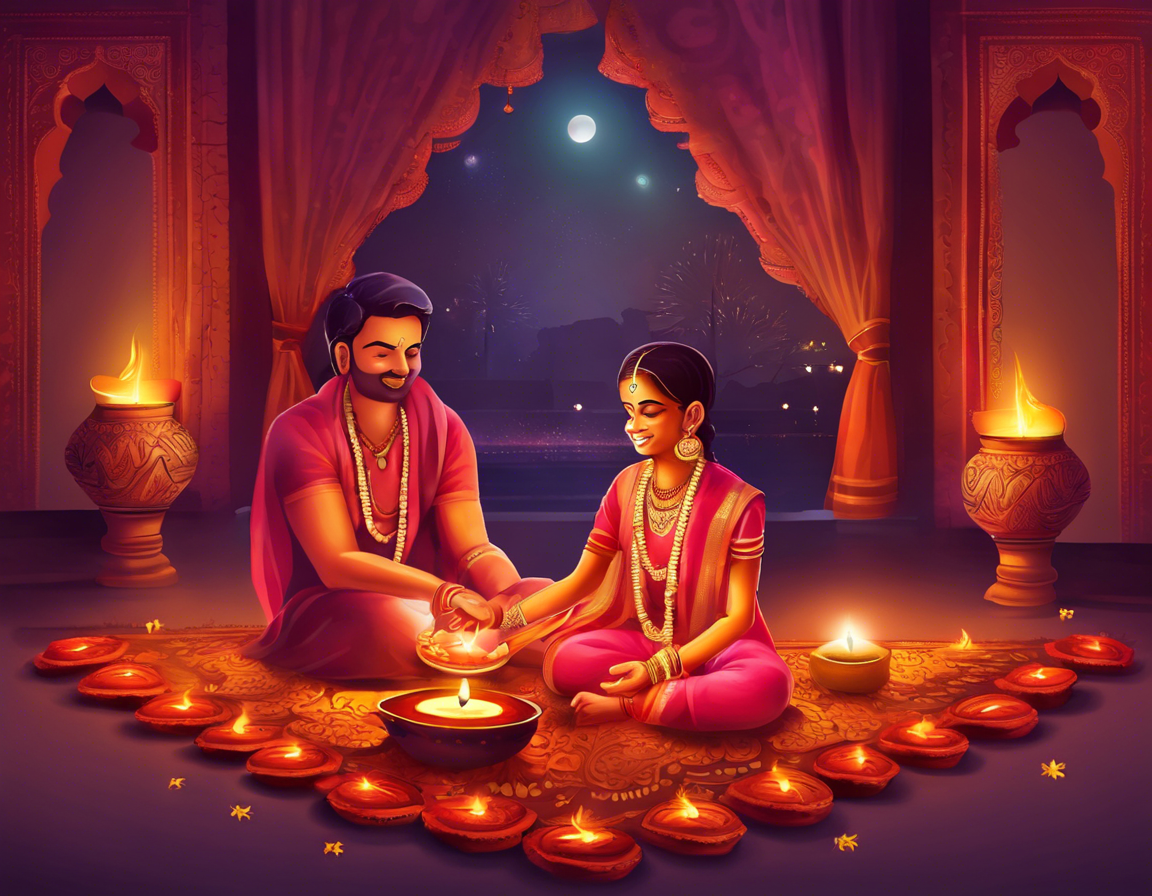Diwali, also known as the festival of lights, is one of the most awaited and widely celebrated festivals in India and among Hindu communities worldwide. Apart from the vibrant fireworks, the delicious sweets, and the joyous spirit that permeates households, one of the key components of Diwali celebrations is Diwali puja – a ritual of offering prayers to Goddess Lakshmi, the deity of wealth and prosperity, and seeking her blessings for a prosperous year ahead. Performing the Diwali puja at the auspicious timing holds deep significance and is believed to enhance the positive effects of the rituals.
Significance of Diwali Puja Timings
In Hindu tradition, each festival and ritual is associated with specific timings that are considered auspicious for various reasons, primarily based on the position of celestial bodies and their influence on human life. The Diwali puja timings, in particular, are crucial as they are believed to align with the cosmic energy and help in harnessing the maximum benefits of the prayers.
Diwali Puja Timings 2023
Diwali falls on the 15th day of the Hindu month of Kartik, which typically corresponds to the months of October and November in the Gregorian calendar. The day of Diwali is divided into several muhurats (auspicious timings) for performing different rituals. Here are the key timings for Diwali puja in 2023:
Amavasya Tithi Begins:
The Amavasya Tithi (new moon day) begins at 6:07 PM on November 1, 2023.
Pradosh Kaal:
The Pradosh Kaal, which is considered ideal for performing the Diwali puja, falls between 5:37 PM to 8:14 PM on November 1, 2023.
Vrishabha Kaal:
The Vrishabha Kaal, another auspicious window for the Diwali puja, falls between 5:37 PM to 7:33 PM on November 1, 2023.
Steps to Perform Diwali Puja
Performing the Diwali puja is a sacred ritual that involves several steps and offerings to the deities. Here is a step-by-step guide to help you perform the Diwali puja with devotion and adherence to traditions:
-
Cleanse the Home: Begin by cleaning your house thoroughly to welcome the Goddess Lakshmi into a clean and pure environment.
-
Gather Puja Items: Collect all the necessary items for the puja, including idols or images of Goddess Lakshmi and Lord Ganesha, incense sticks, lamps, flowers, fruits, sweets, and a new set of clothes for the deities.
-
Set Up the Puja: Create a sacred space for the puja by placing a clean cloth on a raised platform. Install the idols of Goddess Lakshmi and Lord Ganesha and decorate them with flowers and ornaments.
-
Light the Lamps: Light oil lamps or candles to symbolize the victory of light over darkness and the dispelling of negativity.
-
Offer Prayers: Invoke the blessings of Goddess Lakshmi and Lord Ganesha by chanting mantras and offering flowers, incense, and sweets.
-
Aarti and Puja: Perform aarti by circling the lamps in front of the deities and seek their blessings for prosperity and well-being.
-
Distribute Prasad: Conclude the puja by distributing prasad (blessed offerings) to all family members and seeking their blessings.
Frequently Asked Questions (FAQs)
Q1: Can Diwali puja be performed at any time during the day?
A1: Ideally, the Diwali puja should be performed during the Pradosh Kaal and Vrishabha Kaal timings, as they are considered highly auspicious for the ritual.
Q2: What is the significance of lighting lamps during Diwali puja?
A2: Lighting lamps symbolizes the victory of light over darkness and the dispelling of negativity and ignorance.
Q3: Is it necessary to have idols of deities for the Diwali puja?
A3: While idols or images of Goddess Lakshmi and Lord Ganesha are traditionally used for the puja, one can also perform the ritual with a symbolic representation of the deities.
Q4: Can non-Hindus participate in Diwali puja?
A4: Diwali is a festival that celebrates universal values like light, knowledge, and prosperity, and people from all backgrounds are welcome to participate in the celebrations and rituals.
Q5: What should one do with the prasad after the Diwali puja?
A5: The prasad can be distributed among family members and consumed as a blessed offering. It is believed to bring prosperity and good fortune.
In conclusion, the Diwali puja is a sacred ritual that holds immense significance for devotees seeking prosperity, abundance, and spiritual blessings. By performing the puja with devotion and following the auspicious timings, one can harness the positive energies of the festival and usher in a year filled with joy, success, and prosperity.

